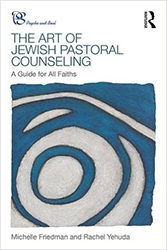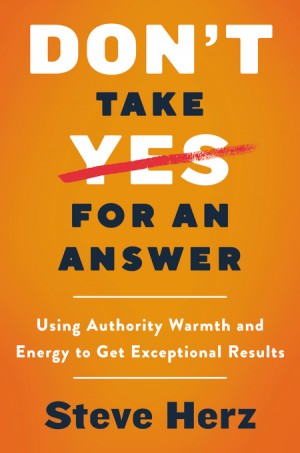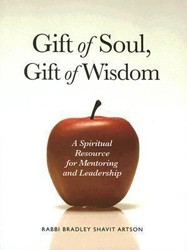Drs. Michelle Friedman and Rachel Yehuda are the co-authors of The Art of Jewish Pastoral Counseling: A Guide for All Faiths. With the holiday season approaching, they will be guest blogging for the Jewish Book Council together as part of the Visiting Scribe series here on The ProsenPeople.
“Rabbi, Thanksgiving is coming up, and after the way my brother behaved last time I can’t bring myself to ever spend the holiday with him like we have always done. What should I do?”
Rabbis get questions like this all the time and especially before holidays.
People turn to clergy and other Jewish professionals for pastoral counseling because they hope to glean wisdom and support that connects them to Jewish tradition. But how are rabbis supposed to get that wisdom and how do rabbis learn how to provide the kind of support warranted by the specific situation?
The wisdom and experience comes from learning how to listen in a specific way. This is harder than it sounds. It is the kind of listening where the rabbi resists the impulse to jump in with a similar vignette from their own life, refrains from giving quick advice, and hears out the story. While listening, the rabbi quietly stays in touch with the anxiety, anger, or sadness stirred up within themself while listening to a painful, deeply human story.
Sometimes, a rabbi may worry that non-judgmental listening implies tacit acceptance of actions that contradict Jewish tradition. But when a caring listener finds a sliver of alliance with the teller of an offensive story, they generate trust; not necessarily approval. In fact, a Jewish pastoral counselor must find some point of connection in order to point out where behavior runs into conflict with Jewish and other values or might even lead to danger.
One way for the rabbi to listen is to ask questions. In the opening vignette, it is not clear whether the sibling got drunk, was missing in action during a family member’s critical illness, questioned Mom about the will, or suggested conversion therapy for a gay family member. The simple direction, “Tell me more,” coupled with quiet attention encourages the most turbulent souls to open up. As the rabbi listens, they can think of questions and generate hypotheses as to what is going on. The congregant fills in the story: “We needed financial help and my sister wouldn’t help;” “My brother was staying with us during his separation and made a pass at the nanny;” “I was going through a rough time and they didn’t bother to check in on how I was doing.”
The rabbi listening might wonder if these slights started long ago or whether they result from something that the congregant did that provoked alienation. They may recall similar painful situations in their own family. Sometimes there was resolution, other times not. Getting in touch with one’s own emotional pulse allows one to empathize with the congregant’s distress while also being clear that their life experiences and reactions are different. The rabbi might ask a few questions to clarify the picture and formulate a hierarchy of goals.
Sometimes people ask for a specifically religious answer: “Rabbi, what does Jewish tradition say about families?” or “Isn’t it against the Torah to embarrass someone?” Jewish tradition has much to say about family relationships and family conflict, about rupture and repair. The rabbi’s sense of tact and timing will determine whether offering a text feels formulaic or supportive. Often the congregant’s question is rhetorical, in the sense that they are not seeking a true Torah ruling but instead trying to get some heavy-duty support for their own feelings and opinions.
 There is no one right answer to any of the above questions. A guiding principle for rabbis and pastoral figures might be to try and circumscribe the problem to the present moment and give the congregant permission to make a decision just for the immediate situation at hand. “I understand your relationship with your brother has been difficult for quite a while. I find it’s more helpful to avoid words like ‘never’ and ‘ever’ — at this time you need to make a decision about this one Thanksgiving. After that, you can think about how that felt and what you want to do next.” This kind of response allows for a kind of pause after Thanksgiving, time in which to metabolize whatever behaviors and feelings come up over the holiday.
There is no one right answer to any of the above questions. A guiding principle for rabbis and pastoral figures might be to try and circumscribe the problem to the present moment and give the congregant permission to make a decision just for the immediate situation at hand. “I understand your relationship with your brother has been difficult for quite a while. I find it’s more helpful to avoid words like ‘never’ and ‘ever’ — at this time you need to make a decision about this one Thanksgiving. After that, you can think about how that felt and what you want to do next.” This kind of response allows for a kind of pause after Thanksgiving, time in which to metabolize whatever behaviors and feelings come up over the holiday.
Few people listen well. The goal of pastoral counseling is to help those going through regular life events as well as crises. The enduring legacy of such support connects Jews to the richness of tradition over the longer arc of time.
Michelle Friedman and Rachel Yehuda are the co-authors of The Art of Jewish Pastoral Counseling: A Guide for All Faiths and professors at the Icahn School of Medicine at Mount Sinai Hospital in New York City. Along with their independent positions and distinctions, both authors teach pastoral counseling at Yeshivat Chovevei Torah Rabbinical School (YCT) in Riverdale, New York.
Related Content:
- Harry Brod: A Jewish Thanksgiving in Avalon
- Judith Felensfeld: Unexpected Guests in Fiction
- Dr. Erica Brown: Learning to Mourn




